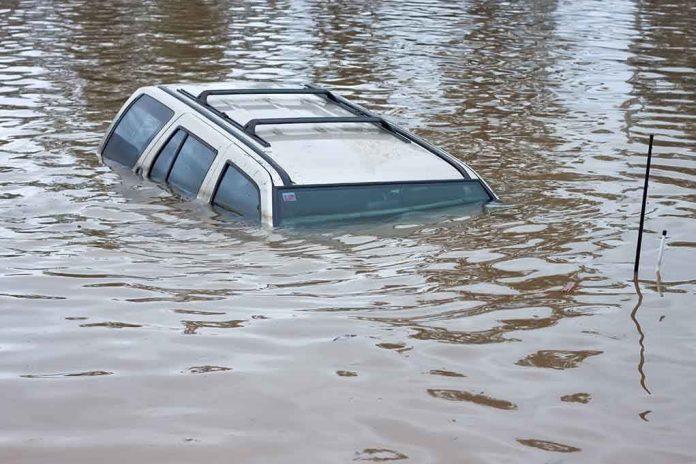
Texas Congresswoman Jasmine Crockett claims the Trump administration would rather risk burying their own constituents under floodwaters than lift a finger to address what she labels as “climate change”—but the facts, as always, tell a far more complicated story about disaster politics, government red tape, and leftist grandstanding that’s become all too familiar in Washington.
At a Glance
- Rep. Jasmine Crockett accuses the Trump administration of slow-walking federal disaster aid after deadly Texas floods.
- Policy changes by DHS Secretary Kristi Noem required new approvals, sparking debate over whether bureaucracy delayed FEMA’s response.
- Crockett insists climate change is to blame, demanding more government intervention and bigger budgets.
- The Trump administration and FEMA defend their actions, citing the necessity of oversight and fiscal responsibility.
Texas Floods Ignite Political Storm Over Federal Disaster Response
Central Texas was battered by catastrophic flash floods over the July 4th weekend, leaving families devastated and communities scrambling for help. As rescue operations unfolded, headlines quickly shifted from the tragedy on the ground to a barrage of accusations lobbed from Washington. Leading the charge: Representative Jasmine Crockett, Democrat from Dallas, who seized the crisis to hammer the Trump administration for what she called “inaction” and “politicizing” disaster relief. Her main claim—Republicans care more about bureaucracy and budget control than saving lives—has become familiar rhetoric, but the reality is far more nuanced.
After the floodwaters receded, the real deluge was a flood of oversight letters and televised outrage. Crockett, alongside fellow Texas Democrat Greg Casar, fired off a formal letter to FEMA’s acting administrator, demanding to know whether new Department of Homeland Security rules delayed the arrival of federal search and rescue teams. The focus quickly centered on DHS Secretary Kristi Noem’s recent policy: any contract or grant over $100,000 required her personal sign-off. Democrats argued this slowed the federal response when minutes mattered. FEMA and the National Weather Service, for their part, countered that they had extra staff on duty and responded as quickly as possible, pointing to the unpredictability and sheer scale of the disaster.
Democrats Push Climate Change Narrative, Call for Bigger Budgets
Crockett wasted no time connecting the Texas floods to the broader cause of climate change, insisting in interviews that the catastrophe “proves” the need for urgent action and more government spending. She repeatedly accused the Trump administration of “climate denial” and paralyzing emergency response with endless oversight. But critics can’t help but notice the pattern: every natural disaster becomes a pretext for the left to push for more centralized power, more spending, and less accountability for where the money actually goes. The message from Crockett and allies is clear—if you don’t support their big-government solutions, you’re complicit in every tragedy nature throws our way.
In the meantime, the administration has maintained that responsible oversight is not only necessary but essential to prevent waste and ensure help gets to the people who need it most. President Trump traveled to Texas to survey the damage, promising support while also underscoring the importance of cutting through bureaucratic waste. The National Weather Service, under fire for alleged staffing shortages, responded that their New Braunfels office was fully staffed and operating at maximum capacity throughout the emergency.
Policy, Politics, and the Real Consequences for Texans
Behind the headlines and soundbites, Texas families are left waiting for answers—and for help. Crockett’s oversight crusade has highlighted real concerns about disaster response times and bureaucratic hurdles. Yet the push for ever-growing federal intervention raises questions about the balance between oversight and action, especially when every dollar is a dollar taken from hardworking taxpayers. The Trump administration’s insistence on fiscal discipline and accountability stands in sharp contrast to the endless calls for more spending without concrete results.
While Democrats continue to use every crisis to demand more centralized control, Texans know from experience that more government doesn’t always mean better government. As the debate rages on in Washington, it’s clear that the real victims of these political games are the people on the ground—hardworking Americans who just want their government to work for them, not against them. The left’s strategy of exploiting tragedy for political gain isn’t just cynical—it’s a distraction from the practical solutions that real communities need in times of crisis.





